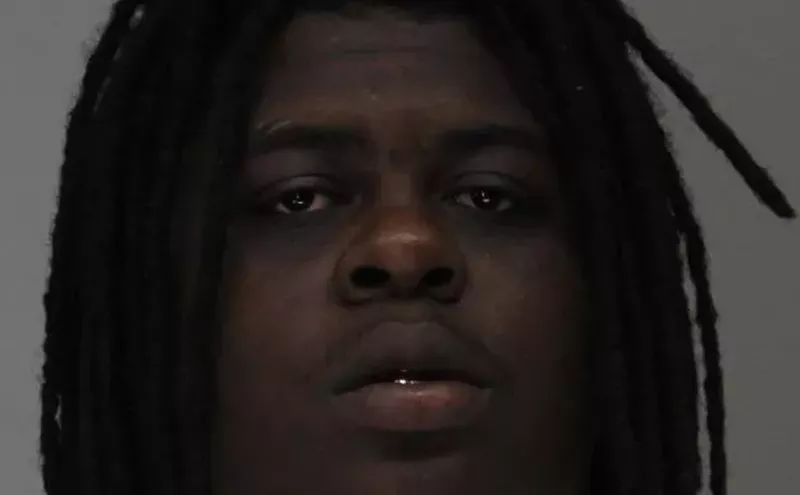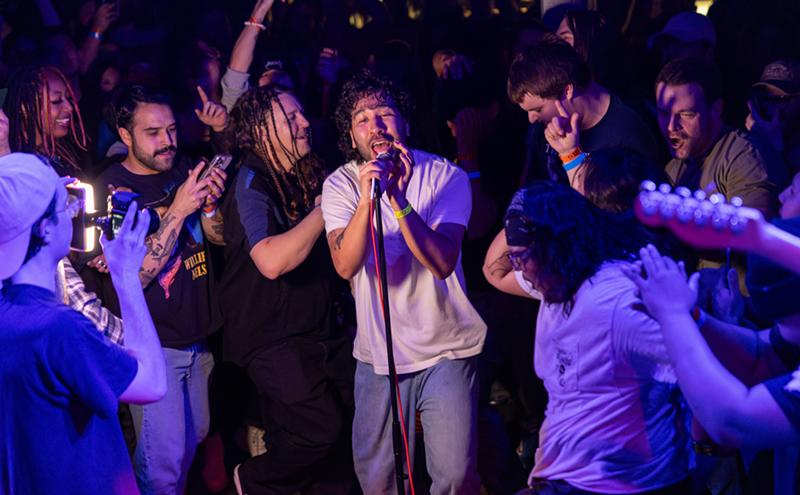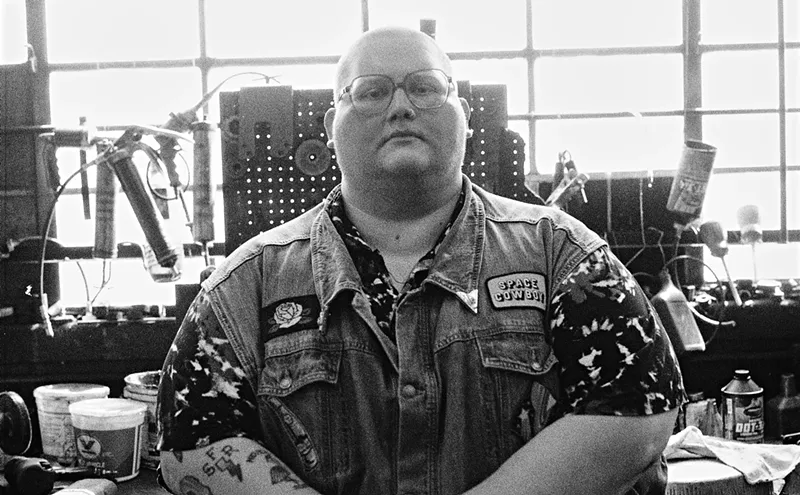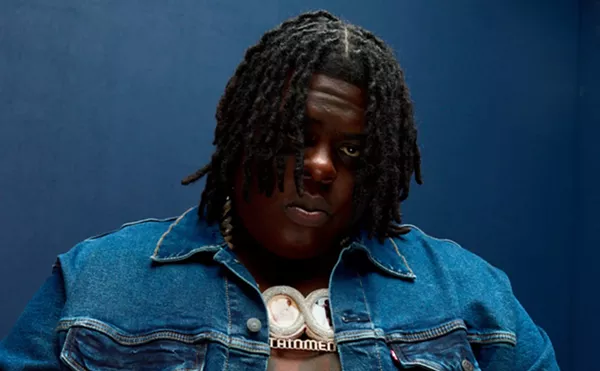The memories faded long ago, like old pictures left too long in the unforgiving August sun. The applause turned to echoes; the echoes to silence. Whatever fame she once possessed--and it wasn't enough to land her in a single history book, which is history's loss--has vanished, which suits her just fine. She's 73 now, so far removed from the spotlight and stage she barely recalls what happened a thousand yesterdays ago--and even then, she remembers only when prompted, which is hardly ever. There are few people left who remember the days when the tiny cowgirl stood, just barely, on the stage of a wrestling venue to sing her pretty, venomous songs about drunk, cheating, honky-tonk husbands. But those who are left have long since moved on, as has she: Helen Hall long ago traded in songs of sin for psalms of salvation. Today, you can find her outside Palestine, Texas, singing backup in the Fairfield Christian Center choir on Sunday mornings, alongside her daughter and two other women. She swears she's never been happier. "Happy as a lark," she chimes.
But there was a time, in the mid-1950s, when Hall was this close to stardom: She had a recording contract (with Decca's Coral subsidiary), a starring slot on the Big "D" Jamboree housed in the once-venerable Sportatorium on Industrial Boulevard, and enough fans to have been voted among the best female country singers in more than one magazine (often, ahead of women who would become legends). More importantly, she had her own songs: Hall was among the few performers, male or female, to pen her own material, much of which even now sounds ahead of its time--these feminist anthems, these pissed-off missives about carousing husbands being told off by their indignant spouses. "You don't care about your home/You don't care about your wife," she sang in 1955, before offering the ultimate slapdown: "You're the perfect example of wasted life."
"It seemed to me that was the theme of the day," Hunt says now, laughing at the mention of all those old songs about honky-tonk husbands. "All the big writers, like Webb Pierce, they all seemed to write about that sort of thing. I wrote 'Wasted Life' because it rang a bell. I was somewhere playing a show, and I heard a girl say she was mad at the fellow she was with. She walked away and said, 'You're the perfect example of a wasted life,' and it just rang a bell. I don't know. I never thought much about it. I just wrote about different things, but it's mostly about cheating husbands. That's what country music was all about anyway. They don't do it now, because they got all those long-hair boys from Nashville changing the music altogether. It isn't all that groovy anymore."
At first listen, "Wasted Life" and so many of Hall's other songs--among them "What Else Does She Do Like Me?," "Rock Till My Baby Comes Home," "Hello Baby," and "Honky Tonk Husband," some recorded in the 1950s and others from as late as 1973--sound like proverbial classics, something you heard forever ago on a jukebox somewhere; they carry a familiar sting and sway with a familiar swing. But don't be fooled: They're strangers to your ears, songs that have been buried away in storage for decades--lost and forgotten, especially by the woman who cut those tracks. To Hall--who once played the Jamboree on crutches after a 1955 car accident--they might as well have never existed at all.
She was reminded of their existence only recently, when she received a call from David Dennard, a man who's made a career (if not exactly a living) out of rescuing deserving, discarded musicians out of history's dustbin. Dennard began the 1990s by releasing albums by some of Dallas' best-known young bands (among them Tripping Daisy and Hagfish) on his Dragon Street Records label; he ended the century by unearthing and restoring to glory such abandoned heroes as "Groovey" Joe Poovey and Johnny Dollar. It was Dennard who also unearthed the "lost Dallas sessions" of rockabilly icon Gene Vincent, releasing them on an astonishing CD in 1998, and who last year issued The Big "D" Jamboree Live! Volumes 1 & 2, a double-disc collection of recordings made on the Big "D" Jamboree stage in the 1950s by the likes of Johnny Cash, Carl Perkins, Ronnie Dawson, Jerry Reed, and Wanda Jackson.
Dennard called Hall to tell her he had in his possession some recordings she'd made in 1955 at the studio of producer Jim Beck, among them "Honky Tonk Husband" and "Wasted Life," and some demos she cut in a Fort Worth home in 1957. He told her he wanted to release those songs on a CD he was planning to release titled The Gals of the Big "D" Jamboree, a companion disc to last year's two-CD release. The collection, he told her, was going to feature nothing but performances by women who had appeared on the Sportatorium stage, among them Hall, Charline Arthur, Sunshine Ruby, The Lovett Singers, Sherry Davis, and Betty Lou Lobb--all women relegated to the margins of country and rockabilly history. When Dennard phoned, Hall recalls, she was "surprised to no end."
"These are all women who were deserving of fame, but they didn't make it for who knows what reason, and they deserve recognition," says Dennard, who has become the most important figure in the preservation of this city's musical past. "They were thrilled anyone cared at this point. They couldn't believe anyone was interested anymore. They've become grandmothers and were shocked anyone would remember them, much less someone my age. And they were always flattered by how much I knew about them. They would ask me, 'Where did you find this stuff? How do you know this stuff?' I mean, I was sending them cassettes of things they hadn't heard in almost 50 years."
Unlike last year's The Big "D" Jamboree Live! collection, most of the songs on Gals of the Big "D" Jamboree weren't actually recorded on the Sportatorium stage; in fact, only a handful of the 29 were taped in front of that raucous Saturday-night audience. But that does nothing to diminish the importance of the collection: If The Big "D" Jamboree Live! served as a historical document, presenting a snapshot of that precise moment in time when country music began its obstinate struggle with that encroaching demon known as rock and roll, then The Gals of the Big "D" Jamboree exists to remind us there were so many female country and rockabilly performers whose work remains viable long after it was discarded.
"Show business is so mercurial," says Dennard, who assembled the collection from recordings he discovered at the Library of Congress and in the archives of Ed McLemore, who ran the Big "D" Jamboree and managed so many of the artists who performed there. "You get a talent like Helen Hall. Why didn't she make it? Is it because of her car accident? Wrong place, wrong time? I just don't know. For every star, there are 10 people who didn't make it who are just as good. There's such legacy of good music here, and I didn't think [the fact they've been forgotten] was a good enough reason to let their music disappear."
Of the 11 artists found on the collection, only one's been remembered by history: Henrietta-born Charline Arthur, who joined the Jamboree in 1952, recorded for RCA Records from 1953 till 1956 (thanks to some help from Colonel Tom Parker, no less), and kept trying to make records until the mid-1970s. Hers is one of the most fascinating tales in Texas music history, and among the least-told; that she died in 1987, living in anonymous squalor, ensured she would remain a legend, if only because it would later become so hard to distinguish facts from fictions by those who recounted her story. That she was the only woman to play the Jamboree in slacks, that she took photographs with cigarettes dangling from her fingertips, only made her more mythical.
She was born to a Pentecostal preacher, bought her first guitar when she was 7, and wrote her first honky-tonk tune when she was all of 12. When she was about 20, in the late 1940s, she began playing clubs across the state, landing in Kermit to take a job as a radio DJ. When Eddy Arnold and Parker heard her perform, they managed to land her a record deal with RCA, and when she started cutting tracks for the label in 1953, she was produced by Chet Atkins. Though she performed on the Grand Ole Opry, she and Nashville were hardly a perfect fit: The stodgy gatekeepers of country had little patience for her temper and overt sexuality. She fared better at the Jamboree: "Texans," Dennard reminds, "really like to party, and the Big 'D' was a lot less hesitant about letting women do their own thing than the other uptight venues."
Arthur became close friends with Hall, so much so the two began writing and recording together; in 1957, Arthur went into her mobile home in Dallas and cut a version of Hall's "Hello Baby" that appears on the Gals collection. Like so many of the songs on the disc, it straddles country and rockabilly: Arthur sneers that she'll be a "slave to your love"; she roars over a twanging guitar and flat, four-four beat. It's sexy but only from a distance; there's something about Arthur that even then seemed a little dangerous--as though getting mixed up with her might become more trouble than it was worth.
"She was sort of a country music Janis Joplin," Hall says of her old friend. "She might have been like that, just a real rebel. But it led to her undoing."
In 1957, RCA dropped Arthur when she proved too commercially unviable; at the same time, she also divorced her husband Jack, who had been her bassist. She moved around, from Utah to Idaho to California, and kept recording for small labels, but nothing ever came of it. She wound up broke and, according to some stories, addicted to drugs (she suffered from debilitating arthritis). In 1986, Bear Family, a German label devoted to reissuing the works of unsung heroes of country and rock and roll, released a collection of her material, Welcome to the Club; a year later, Arthur died penniless and, from all accounts, utterly alone. "She is," Dennard says, "a tragic heroine."
In the end, what makes something like The Gals of the Big "D" Jamboree so intoxicating isn't just the music but the lost tales these women tell--of sharing stages with the likes of Johnny Cash and Johnny Horton, of playing with the Light Crust Doughboys, and of sacrificing their careers for their families. That, more than anything else, is why so many of these women have vanished from the history books: More often than not, they willingly settled down, had children, and left behind the hellish life of the touring bus.
That's the very reason Sherry Davis gives for quitting the show-business life in 1971--despite the fact she once recorded with Buddy Holly and the Crickets, toured Texas with Elvis Presley, and performed in Las Vegas for several years with Esquivel, whose music would, in the 1990s, become the soundtrack for would-be hipsters living in their space-age bachelor pads.
Davis is represented on The Gals by five songs, most of which she barely remembers recording. Of the hell-raising "Bop City," cut in a Dallas studio in 1957, she will only say that it's "something I don't even remember doing." But she very clearly recalls recording "Broken Promises" in July 1957; no amount of distance can fog the memory of making music with Buddy Holly in Clovis, New Mexico, a mere two months after Holly cut "That'll Be the Day" in the same studio.
"This was before Buddy Holly became famous," says Davis, better known to fans of her long-running Las Vegas act as "Della Lee." "Buddy was crashing there at the little apartment in back of Norman Petty's studio, so when Norman Petty asked him and the Crickets if they'd mind backing me, they said no, they didn't mind. I didn't know it was Buddy Holly. I met him, and we all had a long conversation over dinner, so when he became famous, I realized this was the group that backed me. But my manager would not release 'Broken Promises' without the publishing rights, and none of the major record companies wanted to give us the publishing rights, because that's where they made their money. It was two years before my manager found a small company that agreed to let him have the publishing, and by then I had moved on and didn't have any interest in it whatsoever."
Three months after recording with Holly, Ed McLemore persuaded Davis to do a short tour of Texas with Presley, and she recalls the trip with mixed emotions: She was thrilled to perform with Elvis, but it wasn't easy being one of the only God-fearing Christians among so many rock-and-roll heathens. But it would always be like that for Davis, who moved to Cocoa Beach, Florida, in 1962 to entertain the Mercury astronauts--she recalls that John Glenn asked her to perform "Around the World" upon his return from outer space--and then wound up in Las Vegas to sing with Esquivel. (She appears on but one recording: "Malaguena Salerosa" on 1967's The Genius of Esquivel.)
She quit show business completely in 1971, when she had a daughter after years of being told she'd never be able to have children. For years, Davis never let her girl out of her sight, refusing even to leave her with baby sitters to go out to dinner. She now lives back in Dallas, known as Della Lee to her closest, churchgoing friends. No one's called her Sherry Davis in a long, long time.
But even though she's quick to denounce rock and roll as "squalling and screaming" made by those with "long hair and no dignity and no quality," Davis is a bit thrilled about having these old recordings out there, even something as bawdy and brash as "Bop City." If nothing else, people will be able to hear the pride she took back then--the quality of her craft, as she likes to say. And there is no crime in wanting to be remembered.
"It would be very nice to know that people can hear the quality I worked so hard for--the study, the hard work," she says. "If they appreciate it, it would be great to know that, but I don't sing like that anymore, because I haven't sung like that in years. The voice is like any instrument: If you don't use it, you lose it. I will be excited if people get excited about it, but I don't know what I could do about it, except enjoy it and be grateful someone has done all this stuff." She chuckles softly. "I can't believe those records were ever made at all."












